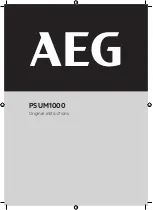
Notes on Synchronizing and Phase:
Phases A and B for each style of flash pattern in the table denote the relative timing between LED heads connected in a synchronizing
installation. To operate simultaneously, each LED must be set to the same phase (A + A or B + B); to operate alternately, LED heads
must be set to have the opposite phase (A + B or B + A).
To simplify the set-up of a synchronized installation, the following process is recommended:
1. Determine the desired style of flash pattern for each LED head and set each unit individually (without the BLUE wires connected
together) to avoid confusion. It is also strongly recommended that the same style of flash pattern be used on all heads to produce
the most effective warning pattern.
2. Connect the BLUE (SYNC) wires together and check that the LED heads are flashing in a synchronized manner as expected. If a
pattern on one module appears to be wrong, the YELLOW (PATTERN SET) wire can be used to cycle forward or backward on that
individual LED head until the correct pattern is selected. Note: This will only change the pattern in the one LED head and will not
affect the other units connected to the BLUE (SYNC) wire.
Synchronizing Example
As an example, an installation is required where there are two LED heads on the front driver side of the vehicle and two LED heads
on the front passenger side of the vehicle. The LED heads are to flash alternate sides of the vehicle with a synchronized quad-flash
style of flash pattern. First, configure the two LED heads for the driver side of the vehicle to pattern 4 (quad-flash style, phase A). Now
configure the other two LED heads for the passenger side with pattern 5 (quad-flash style, phase B). Connect the blue wires from the
four LED heads together. When power is switched to the LED heads, they should flash as expected (passenger side LED heads will
alternate with driver side LED heads). If necessary, corrections can be made to the flash patterns on each LED head individually with
the wiring complete.






















